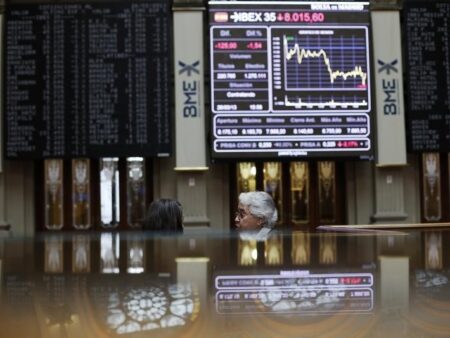Investing.com — Donald Trump’s post-election remarks and choices for cabinet appointments indicate that his administration is likely to remain aligned with his campaign pledges.
Supported by a clear electoral mandate and Republican dominance in Congress, his policies are expected to focus on “beautiful” tariffs as a cornerstone of his economic strategy.
According to Bernstein, these tariffs, designed to bring manufacturing jobs back to the US, could have significant implications for German automakers such as BMW (ETR:), Mercedes Benz Group AG (ETR:), and Volkswagen (ETR:), which are heavily reliant on the US market and imports.
BMW and Mercedes generate about 18-19% of their automotive revenue in the US, with half of their sales coming from imported vehicles. Volkswagen faces even higher exposure, with 75% of its US revenues tied to imports.
Bernstein estimates that a potential 20% tariff could lead to significant costs—€0.5–1 billion for BMW and Mercedes, and as much as €3.3 billion for Volkswagen. However, drawbacks, which allow manufacturers to offset tariffs on imports with export credits, may provide some relief.
This concept “allows importers to claim a refund or drawback on tariffs paid by offsetting imports against exports of products in the same category/classification,” Bernstein analysts led by Stephen Reitman explained.
They project this could save BMW $550 million and Mercedes $1.1 billion.
Tariffs could also drive up vehicle prices, potentially dampening demand. Bernstein estimates a 20% tariff could increase the manufacturer’s suggested retail price (MSRP) for imported models by as much as 6%, even with a 50% pass-through to consumers. This is particularly concerning for Volkswagen, which relies heavily on imports.
Localization of production, though an option to mitigate tariff impacts, is not a straightforward solution, according to analysts.
European automakers have limited capacity at their US plants and complex global supply chains. For instance, BMW’s Spartanburg plant in South Carolina, already running at near-full capacity, produces mainly SUVs for both US and export markets.
Mercedes, while having some room for adjustments, would still face challenges reorienting production in response to potentially short-lived tariffs.
Uncertainty also surrounds the future of the US-Mexico-Canada Agreement (USMCA). Trump has threatened to renegotiate or dismantle the agreement, which currently exempts Mexican imports from tariffs.
Volkswagen, which imports 40% of its US sales from Mexico, is particularly at risk. Stellantis (NYSE:), with imports from Mexico and Canada of 21% and 16%, respectively, could also face considerable exposure.
Meanwhile, luxury automakers like Ferrari (NYSE:), which import all their vehicles to the US, might be better positioned to absorb the impact.
“Tariffs on new vehicles will also raise the value of the Ferrari parc in the US, which is not inconsequential considering that the majority of Ferraris are bought by existing owners of the brand,” analysts note.
Bernstein points out that the biggest uncertainty lies in the size and scope of potential tariffs. It remains unclear whether the current 2.5% tariff on cars will rise to 10%, aligning with EU rates, or escalate further to 20% or 25%, matching US light truck tariffs.
Trump’s threats to dismantle the USMCA add further unpredictability, alongside questions about how long any new tariffs might last.
Source link

















